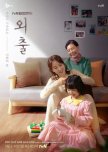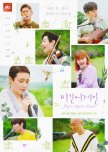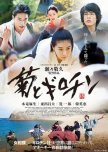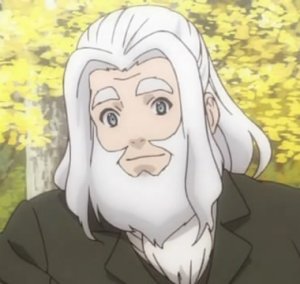
A story about how not to do grief.
Don't be fooled by the cheery three-generation family scene in the poster. This two-part drama is almost unrelentingly bleak. The first episode is about a family in grief. They are frozen, shut-down, withdrawn, and sundered from each other. As is so often the case in Korean dramas, they are in desperate need of communication but can't. We are not shown anything of their lives together before the death, and so we can't feel any connection with them and we can only observe, and there are no lighter moments to provide some relief.In the second episode they start to talk, but a culture of blame means that all they can express is rage and crushing guilt. The husband is trying to care, but he is accused of not grieving because he is not evidently suffering enough. Eventually the truth behind the death emerges accidentally, not because anyone is genuinely trying to find understanding. The real culprits are not within the family, but are a narcissistic and abusive husband/father, and the contemptuous male-dominated corporate culture. This drama is apparently a story for women, and finally most of the women of the story start to care for and support each other, but it's only hurriedly depicted near the end of the second and final episode.
Far too much grief, not enough background story to engage us with this family and care about their suffering, and not nearly enough about their repair and healing. The stars I gave this were basically because I didn't drop this one half-way, but that was mainly in hope that there would be a point to all this suffering. In the end, it wasn't worth the ride.
The acting was convincing, but it didn't require any subtlety or skill. They had to depict either shut-down or enraged.
The background music was minimal and I only noticed it near the end, when it seemed to be working to lift us out of the bleak mood, because the story was not strong enough to achieve that unaided.
The english subtitles which are available are evidently not by a native English speaker, and there were several moments when it wasn't clear what was actually going on i.e. the translator didn't know how to express things clearly in English. I think this had a significant impact on my viewing experience.
Was this review helpful to you?

The universal language of music in a time of plague in the world.
Wonderful programme in which a selection of Korea's best popular singers and musicians play live to small gatherings of masked Korean citizens at various choice locations around the country, including sites affected by the coronavirus epidemic such as hospitals and airports. I couldn't understand most of the Korean language as they chat together during rehearsals and travelling en route to concerts, but their music is universal. They perform a selection of well-known Korean pop songs, and pop music from the Western world. All the singers and the musicians are first class, and there are also enjoyable moments of humour, as they clearly all get on well together. My favorite is Lee Su-hyun from the duo AKMU, she's so cute and has such a beautiful voice, and her standout performance was "Into the Unknown" from Frozen II, also covered by Korea's Taeyeon. Su-hyun's version is as good as anyone's, and she sings a reprise while skating around an ice rink between the audience members. Henry is a blast, playing many instruments like a virtuoso, singing his head off, clowning around and making the female audience members swoon.Was this review helpful to you?

Face eating
My first Chinese drama watch, and so it was fun at the time.But as the reviews say, the perfect girl and the perfect guy get together. His one fault is that every time he kisses her, he backs her against a wall and proceeds to practically eat her face off. Her one fault is that she puts up with this nonsense.
The movie version is rather more enjoyable.
I was amazed at the sizes of all the rooms, except for the university dorms. Massive offices with loads of open space. Where does China fit all those rooms?
Was this review helpful to you?

long and violent
This sprawling movie begins like a documentary, with voice-over and text-over narration, backgrounding a Japan in economic turmoil after the Great Kanto Earthquake of 1923, and political turmoil with the rise of socialism and anarchism, and the fascist authoritarian backlash. Many characters are introduced, including a group of young male anarchists who spend their time shouting at each other and botching assassination attempts, and a travelling troupe of female sumo wrestlers, who are at each others' throats as much off the ring as on. The sumo bouts are done well, in a long sequence that was as exciting as the male sumo tournaments I've seen on Japanese television. The women have taken up this life to escape dominating fathers and husbands, seeking the freedom they imagine in developing their strength, but it's illusory and only found in fleeting moments during bouts, as the forces of male authority outside the ring continue to impose on their lives. Apparently female sumo was popular among the proletariat for about a hundred years until about 1960. Eventually the movie focusses on a couple of the anarchists who connect with a couple of the women and hang around with the sumo troupe, and then the plot centres on the authorities' attempts to cover up a recent massacre of Koreans. I hadn't connected with any of the characters or their story, wasn't enjoying the emotional and physical violence, and dropped this movie about 2/3 through.Was this review helpful to you?





